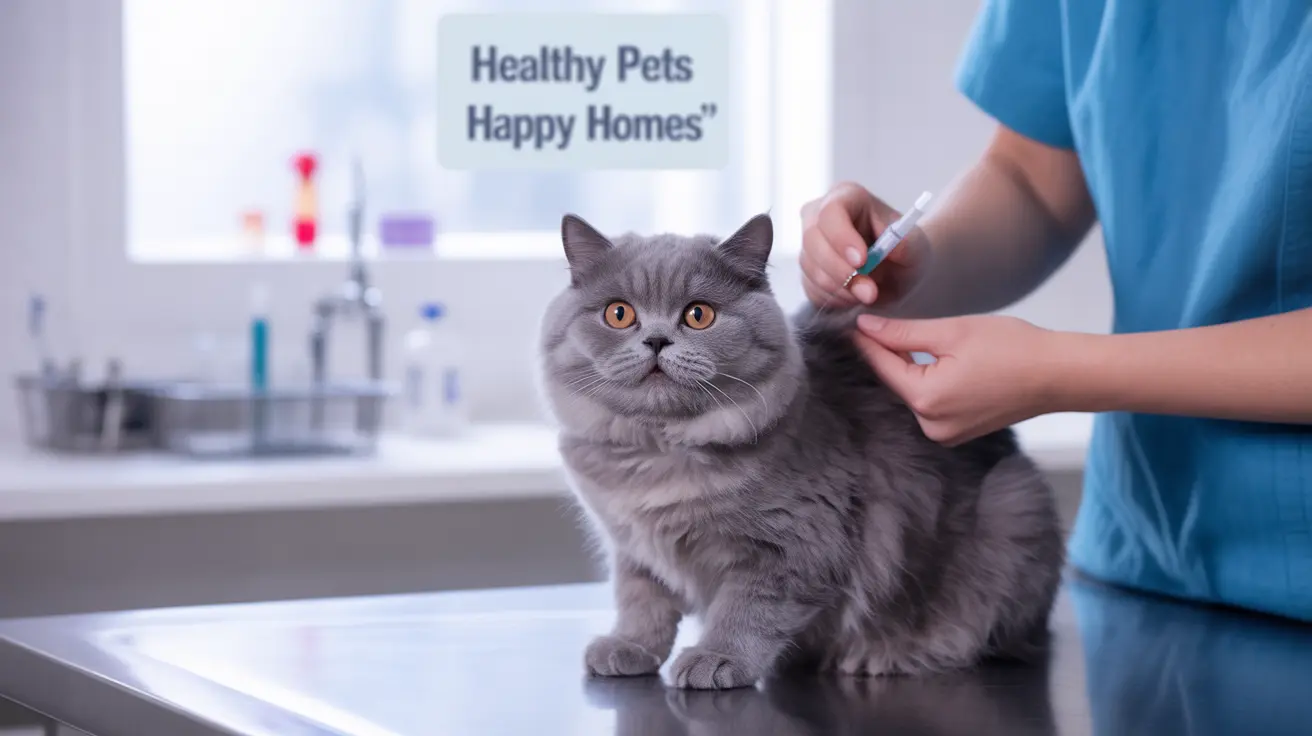Introduction
Protecting your cat against deadly diseases is a crucial responsibility of pet ownership, and understanding the distemper vaccine for cats is essential for their well-being. Feline distemper, also known as panleukopenia, is a severe and potentially fatal viral disease that can strike cats of any age, making prevention through vaccination critical.
In this comprehensive guide, we'll explore everything you need to know about the feline distemper vaccine, including its importance, scheduling, and how it safeguards your cat's health against this dangerous virus.
Understanding the Feline Distemper Vaccine
The feline distemper vaccine is considered a core vaccination, meaning it's essential for all cats regardless of their lifestyle. This vaccine protects against the highly contagious feline parvovirus (FPV), which causes severe illness and can be fatal, especially in young kittens.
The vaccine works by stimulating your cat's immune system to produce antibodies against the virus, providing crucial protection against infection. Modern feline distemper vaccines are safe, effective, and have been instrumental in reducing the prevalence of this devastating disease.
Vaccination Schedule and Timing
Proper timing of the feline distemper vaccine is crucial for optimal protection. Kittens typically begin their vaccination series at 6-8 weeks of age, with boosters given every 3-4 weeks until they reach 16-20 weeks old. This schedule ensures maximum immunity development during their vulnerable early months.
Adult cats require regular boosters to maintain their protection. Your veterinarian will recommend an appropriate schedule, typically every 1-3 years, based on your cat's age, health status, and lifestyle factors.
Importance of Vaccination Protection
Vaccination against feline distemper is particularly crucial because the virus is extremely hardy and can survive in the environment for up to a year. Unvaccinated cats are at risk of contracting the virus through direct contact with infected animals or contaminated environments.
The vaccine provides robust protection against:
- Severe gastrointestinal symptoms
- Bone marrow suppression
- Neurological complications
- Potentially fatal infections
Special Considerations and Precautions
While the feline distemper vaccine is generally safe, there are some important considerations:
- Pregnant cats should receive special consideration regarding vaccination timing
- Cats with certain medical conditions may need modified vaccination schedules
- Indoor-only cats still need protection due to the virus's environmental persistence
- Multi-cat households should ensure all cats are properly vaccinated
Frequently Asked Questions
What are the common symptoms of feline distemper in cats?
Common symptoms include severe vomiting, diarrhea, high fever, lethargy, loss of appetite, and dehydration. In young kittens, the virus can also cause neurological symptoms and affect development.
How is feline distemper transmitted, and what precautions should I take?
Feline distemper is transmitted through direct contact with infected cats or contaminated environments. Practice good hygiene, isolate infected cats, and maintain regular vaccination schedules as preventive measures.
What is the best way to prevent feline distemper in my cat?
Vaccination is the most effective prevention method. Keep your cat's vaccines current, practice good sanitation, and avoid exposing your cat to potentially infected animals or environments.
Can feline distemper be treated, and what are the typical treatment options?
While there's no cure for the virus itself, treatment focuses on supportive care including IV fluids, antibiotics to prevent secondary infections, and nursing care. Early intervention improves survival chances.
How often should my cat receive the feline distemper vaccine?
Kittens need a series of vaccines between 6-16 weeks of age. Adult cats typically need boosters every 1-3 years, based on their veterinarian's assessment of their individual risk factors and lifestyle.
Conclusion
The feline distemper vaccine is a crucial tool in protecting your cat's health. By maintaining proper vaccination schedules and working closely with your veterinarian, you can help ensure your feline companion remains protected against this serious disease. Remember that prevention through vaccination is always preferable to treating an active infection.






